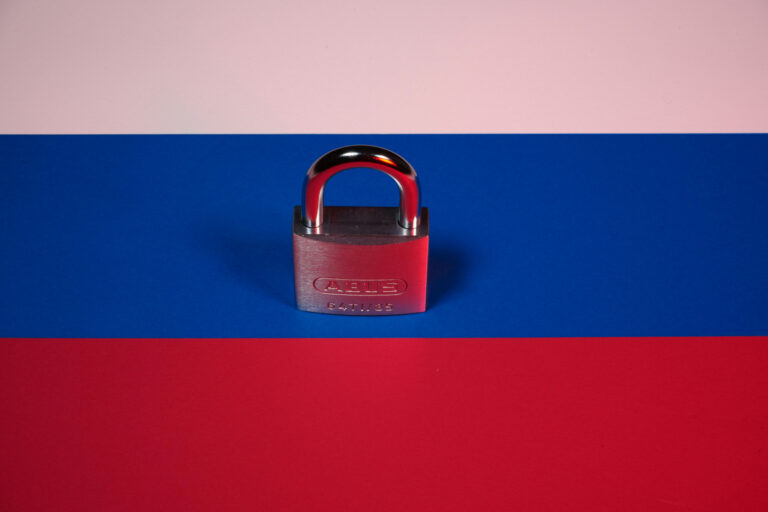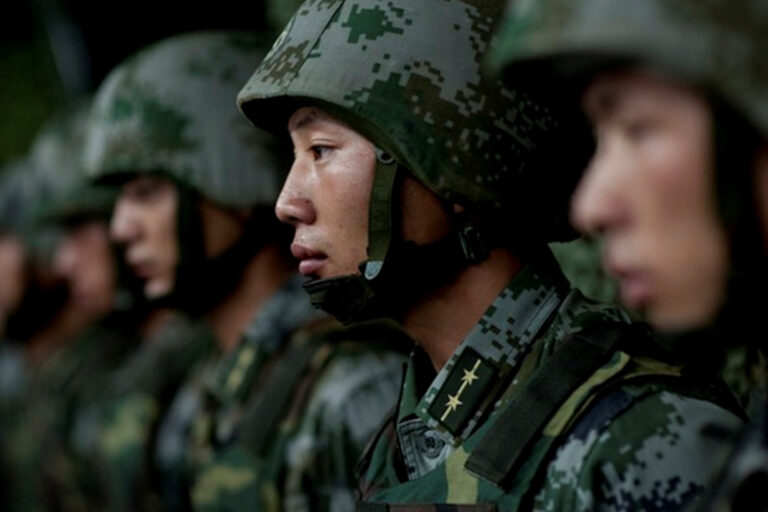Marcus Walsh-Führing is a Postdoctoral Fellow at JHU SAIS Europe who will obtain his Ph.D. in Political Science from the University of Bremen (expected 2019). His doctoral dissertation at the University of Bremen, Self-Regulation and Taxation in the Brazilian State, 1960-2010: Complexity and Challenges, provides a historical account and analysis on the interdependency between tax policy, state-owned enterprises, and regulatory policy in Brazil. Marcus’ research interests focus on Latin America, the European Union (EU), transatlantic relations, governance, party politics, and regulatory autonomy. Marcus has published numerous reviews in: The Journal of Common Market Studies, Capital & Class, International Affairs, and International Studies Review.
Introduction
The rise of populism is a direct threat to the European project. If France and Germany are not able to maintain a pro-democratic message, the liberal world order will lose its foothold in Europe. Fragmentation in German politics is among the greatest threats to the democratic cause.
The German Chancellor and former Christian Democratic Union (CDU) party leader Angela Merkel has been facing challenges from members in her own CDU over immigration and the creation of a new governing coalition. These challenges, though, seem to have presented her a silver lining in the form of opportunities to maintain power within her party for the next two years. In recognizing the political demands from the CDU, Merkel has provided a lifeline for the party in regaining control of the political upset in the 2018 federal elections. The message from the CDU to win back the hearts and minds of its constituency is based on the reformulation of its pro-European agenda. For this to happen, the CDU leadership has to address internal conflicts and rebrand its EU message.
The pressure from the CDU for Merkel to step down as party leader and chancellor has challenged her political legacy. To regain control of her policy priorities, Merkel has found an ally in the new party leader, Annegret Kramp-Karrenbauer, who holds similar political views on the EU and immigration. Despite political discontent from members of her party, Kramp-Karrenbauer has been making progress in the CDU to create a consensus on building a unified message. CDU support for Kramp-Karrenbauer has allowed Merkel to create a pact with her that will benefit both politicians’ careers.
Although the CDU agenda of neoliberal economic reform and further European integration is not seen as politically ideal by many, this agenda will allow for the development of a coherent policy toward Europe and consolidate Kramp-Karrenbauer supporters within the CDU.[1] Since there seems to be an equal amount of political pressure for greater political coherence within the CDU, both the former and current party leader will further consolidate their policy agenda of liberal reform in Europe. However, for Germany to maintain its hegemony in the EU, the CDU party leadership needs to regain support from the electorate by reforming its domestic agenda.
To heal internal division and prevent future rifts, Kramp-Karrenbauer proposes to unify the party through political party appointments and her pro-EU coalition in the CDU. To bring the party together, in early January Kramp-Karrenbauer offered an advisory position in trans-Atlantic relations to political rival Friedrich Merz, who also had been competing for the party leadership.[2] Kramp-Karrenbauer will, most likely, also utilize this strategy in the transition of power and to maintain party cohesion during the 2021 elections. The political interests of the CDU are reliant on the benefits of the EU Single Market and trade relations with the United States. For the current CDU party leadership to stay in power and consolidate its message, it will use political appointments to strengthen the main factions of the party.
The Future of German Leadership in Europe
In sharing the same message, Merkel and Kramp-Karrenbauer have been successful in diverting political attention from Merkel’s EU policy by allowing French President Emmanuel Macron to take a more visible role in advancing the neoliberal Franco-German political position which is to implement free market reform in favor of European integration.[3] Since Macron has taken office, Merkel’s speeches have focused less on Germany’s political ambitions while echoing and calling attention to Macron’s pro-EU agenda (e.g. European Banking Union and EU Charter of Fundamental Rights). Macron has advocated more vocally than Merkel for promoting the importance of EU integration as a stabilizing factor for the European continent. This backseat approach has already given Merkel time to focus her agenda of addressing the impact of reducing the immigration crisis in Germany and stimulating domestic economic growth on much-needed immigration and infrastructure policy reform, which will help in solidifying her discourse toward Europe.
In essence, Macron’s leadership creates a capacity to pursue a more liberal political agenda that promotes both countries’ role in the EU. It also gives CDU politicians the opportunity to show their electorate that France is sharing the burden of the immigration crisis and is committed to an economically prosperous Europe. As Macron is being endorsed as the new face of the liberal order for Europe, Merkel and Kramp-Karrenbauer will have the opportunity to build consensus on immigration policy in the CDU and allow for proper security measures to be implemented in the policy reform to appease the CDU base. For example, Merkel has already initiated policy changes regarding the criteria for a reduction in refugee quota.[4] Since the immigration crisis, Merkel, Kramp-Karrenbauer, and Macron have maintained that a united political relationship between Germany and France is the bedrock of a stable Europe.
Germany’s partnership with France will allow Merkel to maintain her EU legacy of an integrated continental Europe while, at the same time, countering the populist mood engulfing the far-right of the CDU and Germany. Since the electoral defeat of the CDU, Merkel has promised to aggressively address the challenges facing her constituency to gain back lost political ground.[5] Merkel’s electoral defeat was caused by a lack of economic opportunities for rural Germans and an influx of refugees into small cities. The far-right parties seized this opportunity to propagate fear by changing the political discussion and creating a negative connection between lack of economic opportunities and the influx of refugees. With the rise in populism, it is hard to imagine how the Chancellor can regain her political reach, but if she can succeed in limiting the electoral hemorrhaging, it will be seen as a political victory. In the German context, populism is still very much in the minority, but it demonstrates an anti-immigration and pro-economic nationalism agenda that is similar to developments in Italy. This has resulted in the fragmentation of Merkel’s “Grand Coalition” and has not allowed for policy consensus to be created.
Merkel’s own party and its sister party, the Christian Social Union (CSU), are competing for a chance to change the policy agenda of a CDU/CSU coalition; however, there is no clear front runner.[6] This lack in leadership occurs as German citizens are struggling to come to grips with their identity and their role in Europe. While the CSU has pushed the coalition to the far right, the size of the CSU and the changing demographics of southern German cities have forced the party more to the center of the political spectrum. It seems that the CSU has overplayed its hand and has given up its political leverage by not being able to appeal to moderate pro-EU voters
Merkel will have to do what she does best: create a policy platform based on the demands of the German electorate. However, even if Merkel pulls off another political miracle by holding on to power for the next two years, the questions of the party’s leadership and its future will still not be solved.
Conclusion: What to expect in 2019?
The political landscape in Germany is riddled by political instability which will be further exacerbated by stagnation in political debates, particularly on the development of a clear strategy for Germany’s engagement with other EU countries. On both sides of the political spectrum, CDU party members and German citizens question the leadership of Annegret Kramp-Karrenbauer of the CDU and, opposing her, Andrea Maria Nahles of the SPD. They question whether Germany would have better political results with a greater presence of pluralism in politics.[7] Greater pluralism would allow for the political competition to create EU policy that is more comprehensive and addresses the electorate that is at the margin of society. In the SPD, party members have publicly denounced negotiations with the CDU on grounds that Merkel has not made any political concessions, especially on tax reform. Despite SPD vocal dissent of the “grand coalition” and dwindling poll numbers of Merkel‘s leadership, the CDU has been able to hold on to a somewhat weak political position in Germany’s Rust Belt (Ruhr region).[8] The CDU’s weakening has allowed SPD party members to question their party’s role as a minority partner in the “grand coalition.”
In allowing for a “grand coalition,” the SPD voting bloc demands more political concessions from the CDU while a lack of CDU leadership will create a “grand coalition” blueprint without a clear policy platform.[9] This will cause more disillusionment and make it harder for Merkel and Kramp-Karrenbauer to highlight the successes of their political careers. Citizens’ disillusionment was stirred up by the latest stabbing involving a teenage Afghan migrant and his former German girlfriend even while, according to statistics for homicide and violent crime incidences, Germany has become a safer country since the opening of its borders.[10][11] The fear factor instilled by the far-right party, Alternative for Germany (AfD), has made it harder for Merkel to govern and pass policy initiatives.
This raises the question of how Chancellor Merkel will address the rise of populism and political discontent.[12] While Merkel has held her ground with the far-right by defending European norms this has not been the case in regard to negotiating new migrant quotas. Merkel will have to consolidate her message by focusing on Germany’s role in Europe and representing herself as a net-winner of globalization. If the SPD will not solve its current leadership problem, Germany will look for Merkel and Kramp-Karrenbauer to govern with a minority government.[13] This will put the CDU at a political disadvantage but will allow it to maintain power through parliamentary and constitutional processes. Despite Germany’s political crisis, the strength of its political parties and governmental institutions cannot be overlooked.
While there is uncertainty in German politics for the near future, Merkel’s pragmatism allows her to engage the political opposition and maintain a sense of normalcy in a domestic crisis. Merkel is a victim of losing touch with the younger voting bloc within her party by not addressing concerns regarding populism, immigration, and the effects of globalization. The rising discontent has played out throughout Europe and the world but Merkel and Kramp-Karrenbauer have experience in enduring shifting political priorities. As of right now, the new leadership by Kramp-Karrenbauer is the only hope for keeping together a fragmented political environment.[14] A fragmented Germany will make it harder for Macron to defend the EU project and will place political and economic pressure on the Franco-German relationship resulting in further instability in Europe. For European stability to have a lasting effect, the EU is dependent on the success of the Franco-German relationship.
Footnotes
[1] “Annegret Kramp-Karrenbauer: Merkel choice elected CDU leader,” BBC News, https://www.bbc.com/news/world-europe-46487246
[2] “Germany: New Leader of Merkel’s Party Finds Role for Rival,” New York Times, https://nyti.ms/2H34jcv?smid=nytcore-ios-share
[3] Jim Brunsden, “Macron’s move,” Financial Times, https://www.ft.com/content/d2ff609a-fc23-11e8-aebf-99e208d3e521
[4] “AfD fails in court bid against Merkel’s refugee policy,” The Local, https://www.thelocal.de/20181218/afd-fails-in-court-bid-against-merkels-refugee-policy
[5] “Markus Söder elected chief of Merkel’s Bavarian allies,” Politico, https://www.politico.eu/article/markus-soder-csu-germany-elected-chief-of-angela-merkel-bavarian-allies/
[6] “Leader of Bavarian CSU promises new start with Merkel’s party,” Reuters, https://uk.reuters.com/article/uk-germany-politics-csu/leader-of-bavarian-csu-promises-new-start-with-merkels-party-idUKKCN1PD0G9
[7] John Ryan, “The SPD may deal the final blow to Angela Markel’s,” EUROPP LSE Blogs, http://blogs.lse.ac.uk/europpblog/2018/10/30/the-spd-may-deal-the-final-blow-to-angela-merkels-chancellorship/
[8] Von Paul Blickle, Andreas Loos, Fabian Mohr, Julia Speckmeier, Julian Stahnke, Sascha Venohr, and Veronika Völlinger, “The AfD Profits from Non-Voters and Merkel Defectors,” Die Zeit Online, https://www.zeit.de/politik/deutschland/2017-09/german-election-alternative-for-germany-angela-merkel
[9] Antje Sirleschtov, Rainer Woratschka, and Robert Birnbaum, “Can Germany’s Grand Coalition survive Merkel’s withdrawal?,” EURACTIV, https://www.euractiv.com/section/elections/news/can-germanys-grand-coalition-survive-merkels-withdrawal/
[10] “Germany: Refugee sentenced to 8 years and 6 months for teen murder,” Deutsche Welle, https://www.dw.com/en/germany-refugee-sentenced-to-8-years-and-6-months-for-teen-murder/a-45329347
[11] “General Information on Police Crime Statistics (PCS),” Federal Criminal Office, https://www.bka.de/SharedDocs/Downloads/EN/Publications/PoliceCrimeStatistics/2017/pks2017FlyerEnglish.pdf?__blob=publicationFile&v=4&smid=nytcore-ios-share
[12] Josie Le Blond, “German chancellor Angela Merkel will not seek re-election in 2021,” The Guardian, https://www.theguardian.com/world/2018/oct/29/angela-merkel-wont-seek-re-election-as-cdu-party-leader
[13] “Cross-party support grows for Merkel minority government,” Politico, https://www.politico.eu/article/angela-merkel-minority-government-support-germany/
[14] Ruth Berschens, “Premiere für Kramp-Karrenbauer – Die neue CDU-Chefin bezieht in Brüssel erstmals Position,” Handelsblatt, https://www.handelsblatt.com/politik/deutschland/europa-wahlkampf-premiere-fuer-kramp-karrenbauer-die-neue-cdu-chefin-bezieht-in-bruessel-erstmals-position/23954206.html



